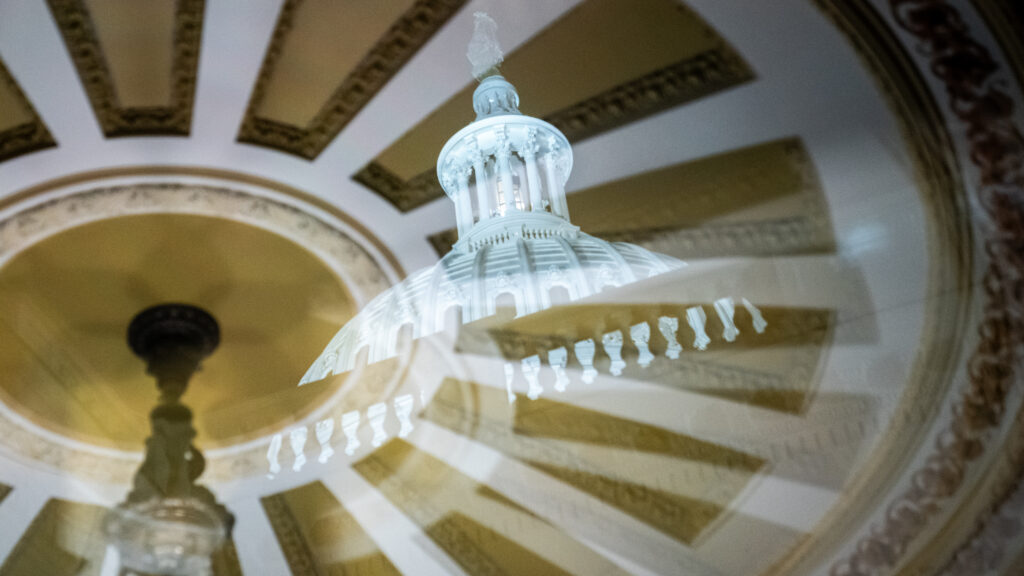WASHINGTON — Around the country, statehouses from Harrisburg, Penn. to Tallahassee, Fla., are being flooded with tobacco industry lobbyists, according to a new report from the anti-smoking advocacy group Action on Smoking and Health.
There are now at least 950 lobbyists representing cigarette, vape, and snus companies in statehouses around the country, according to the latest edition of the group’s Tobacco Industry Lobbyist and Lobbying Firm Registration Tracker, which was released Thursday. The number of lobbying registrations tied to tobacco companies jumped over 10% from 2023 to 2024.
advertisement
ASH’s overall tally, which is based on publicly available lobbying registration data, is likely an undercount because several states only require lobbying firms, not individual lobbyists, to register with the state.
The three states with the largest number of lobbyists are Pennsylvania, Florida, and Ohio with 76, 60, and 46, respectively, according to ASH.
The number of statehouse lobbyists on tobacco company payrolls is a testament to the amount of smoking and vaping-centric legislation that has moved through statehouses over the past six months. Much of that activity centers around state lawmakers’ attempts to pass bills that would help clear the market of illegal flavored vapes, which are overwhelmingly popular with young people.
advertisement
Several statehouses, including those in Missouri and Colorado, are pushing legislation that would task the state with compiling its own registry of FDA-cleared vaping products. Similar legislation has already been signed into law this year in Florida, Kentucky, Nebraska, Utah, and Virginia. The bills are meant to make it easier for shops to identify when they are selling illegally marketed vapes, and for regulators to take action against companies selling illegal products.
The legislative push has split the tobacco industry. Large tobacco companies, most publicly Altria, which sells both Marlboro-brand cigarettes and NJOY-branded vapes, have been actively lobbying for vaping registries. Vaping advocates have dubbed the bills “Big Tobacco Protection Acts.” ASH’s tracker does not distinguish between lobbyists pushing for or against a certain bill.
Several states are also considering other legislation that would significantly impact local government’s ability to set their own tobacco laws.
In Ohio, for example, there is a growing fight in the statehouse over whether local governments can ban flavored vapes. A bill preventing localities from enacting their own flavor bans has pitted the Republican-controlled state legislature against the state’s Republican governor, who has attempted to veto the legislation. In January the legislature overrode that veto and last month several localities in turn sued the state, arguing that localities have the right to pass their own tobacco laws under the state’s constitution. Missouri is also considering legislation that would restrict local governments’ ability to set their own tobacco regulations.
Hawaii, however, is considering legislation that would repeal its so-called preemption law, thereby allowing localities to pass their own rules.
Two states, Pennsylvania and New Jersey, are also in the midst of prolonged fights over the future of smoking in casinos.
The New Jersey Senate health committee passed a bill in January banning smoking in Atlantic City casinos, setting off a major debate over the issue, which had been simmering for roughly four years. By February, a competing bill was introduced watering down the restrictions. Neither bill has yet been signed into law, and smoking remains legal in New Jersey casinos.
Late last year, a key committee in the Pennsylvania legislature also passed a bill banning smoking in Keystone-state casinos. The bill was expected to be taken up by the full Pennsylvania House earlier this year, but the effort has since stalled.
STAT’s coverage of chronic health issues is supported by a grant from Bloomberg Philanthropies. Our financial supporters are not involved in any decisions about our journalism.

